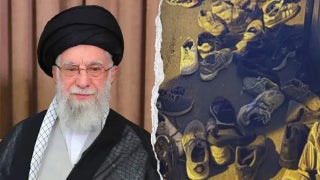MEXICO CITY – A judge in southern Mexico has dismissed criminal charges against five contractors and employees at a resort hotel where an explosion last year killed five Canadian tourists and two Mexicans.
Judge Nicolas Pinzon said Friday that he denied prosecutors' requests for arrest warrants against the five for negligent homicide and professional misconduct in relation to a hidden gas line that exploded Nov. 14, 2010, at the 676-room Grand Riviera Princess resort in Playa del Carmen, south of Cancun.
Prosecutors said the heating-gas line, apparently meant to fuel a pool heating unit, was not properly installed or maintained. They claimed a leak from the line may have been set off by a spark from an electric switch or plug.
Pinzon said he denied the arrest request earlier this week because prosecutors filed charges against company directors or representatives rather than the specific workers who installed the lines, so the case should be handled as a civil lawsuit.
"You can file civil proceedings against a company ... but in criminal cases, you have to go after the person who directly performed the act," Pinzon said. "The catch was that the prosecutors filed charges against the companies."
The office of Quintana Roo state Attorney General Gaspar Garcia noted that the charges were filed under his predecessor, Francisco Alor, who left office in April and had been criticized for failing to win convictions in previous cases.
Alain Cacchione, spokesman for Canada's foreign ministry, said, "We are disappointed that the Mexican judicial system has not proceeded with charges against the individuals responsible for this incident."
The five Canadians killed were Malcolm Johnson of Prince George, British Colombia; Chris Charmont and his 9-year-old son, John, of Drumheller, Alberta; Darlene Ferguson, 51, of Edmonton, Alberta; and Elgin Barron of Guelph, Ontario.
Eighteen others, many of them from Ontario, were injured.
Ferguson's brother, Barry Hoffman, declined to comment at length on the development. He would say only that his family was "not surprised by the outcome."
Pinzon said the victims' relatives could file civil suits against those named in the criminal complaint, including representatives of the hotel's operator, maintenance company and contractors.
The judge said large damage awards would be available in civil cases because moral and collateral damages can be claimed in those suits, while criminal cases rely largely on Mexican labor rates, which sets basic compensation in wrongful deaths cases at the equivalent of about $3,700.
"This doesn't mean that this is going to go unpunished, I want to make that clear," Pinzon said. "This only means it will proceed by the correct route ... a civil proceeding."
Pinzon said prosecutors specifically charged that key tests on the gas pipe were performed incorrectly.
"They argued that the pipe had a leak and that airtightness tests were not correctly carried out," Pinzon said. But because executives, and not the workers, were charged, "we cannot say 'you, because of your fault, you caused all these consequences.'"
He raised the possibility that it would have been hard to prove no matter who was charged.
"The problem here is that because these are hidden installations, a buried pipe, to a certain extent no one knows whether it is going to explode or not," he said.
(This version CORRECTS that judge made ruling earlier this week and talked about it Friday.)








































